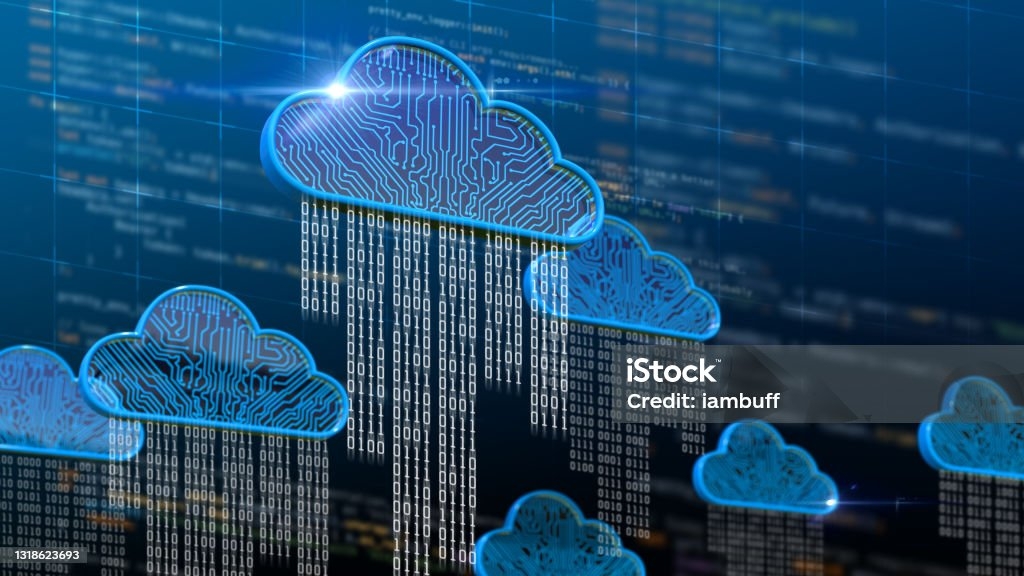How Cloud Backup Solutions Enhance Data Security

At Jenex Technovation, based in Ahmedabad, India, we pride ourselves on offering cutting-edge cloud solutions designed to meet the evolving needs of modern businesses. Among our array of services, cloud backup solutions play a critical role in enhancing data security. In this article, we will explore the various ways in which cloud backup solutions bolster data security, ensuring the integrity and safety of your valuable information.
Understanding Cloud Backup Solutions
Cloud backup solutions involve the process of copying and storing data on a remote server maintained by a third-party service provider. Unlike traditional backup methods that rely on physical storage devices, cloud backups offer a more secure, scalable, and reliable means of safeguarding data.
Key Benefits of Cloud Backup Solutions for Data Security
1. Enhanced Data Encryption
One of the most significant advantages of cloud backup solutions is the robust encryption protocols they employ. Data is encrypted both during transit (when it is being transferred to and from the cloud) and at rest (when it is stored on the cloud servers). This dual-layer encryption ensures that your data remains secure from unauthorized access and cyber threats.
Benefits:
- Protection from Interception: Encryption during data transit prevents hackers from intercepting and accessing the data while it is being transmitted over the internet.
- Secure Storage: Encryption at rest ensures that even if the cloud storage is compromised, the data remains unreadable without the encryption keys.
- Compliance: Many industries have strict data security regulations. Cloud backup solutions help businesses comply with these regulations by providing robust encryption mechanisms.
2. Redundancy and Replication
Cloud backup solutions offer redundancy and replication features, which are critical for data security. Data is often replicated across multiple servers and geographic locations, ensuring that it remains accessible and secure even in the event of a hardware failure or natural disaster.
Benefits:
- High Availability: Redundancy ensures that data is always available, even if one server or data center fails.
- Disaster Recovery: Geographic replication protects data from localized disasters, such as floods, fires, or earthquakes, by storing copies in multiple locations.
- Consistent Backups: Automated replication processes ensure that backups are consistent and up-to-date, reducing the risk of data loss.
3. Automated Backup Processes
Manual backup processes are prone to human error, such as forgetting to perform backups or improperly configuring backup settings. Cloud backup solutions automate the entire backup process, reducing the risk of human error and ensuring that data is consistently and accurately backed up.
Benefits:
- Regular Backups: Automated processes ensure that data is backed up at regular intervals, minimizing the risk of data loss.
- Ease of Use: Automated solutions require minimal intervention from users, making it easier to maintain consistent backups.
- Error Reduction: Automation reduces the risk of errors associated with manual backups, such as incomplete backups or missed schedules.
4. Advanced Threat Detection and Mitigation
Leading cloud backup providers invest heavily in advanced threat detection and mitigation technologies. These include intrusion detection systems (IDS), intrusion prevention systems (IPS), and machine learning algorithms that continuously monitor for suspicious activities and potential security threats.
Benefits:
- Proactive Threat Detection: Advanced systems detect and respond to threats in real-time, preventing potential data breaches.
- Security Monitoring: Continuous monitoring ensures that any anomalies or unauthorized access attempts are promptly identified and addressed.
- Incident Response: Automated incident response mechanisms help mitigate the impact of security incidents, reducing downtime and data loss.
5. Access Control and Authentication
Cloud backup solutions offer robust access control and authentication mechanisms to ensure that only authorized users can access and manage the backed-up data. These mechanisms include multi-factor authentication (MFA), role-based access control (RBAC), and single sign-on (SSO) capabilities.
Benefits:
- Enhanced Security: MFA adds an extra layer of security by requiring multiple forms of verification before granting access.
- Granular Access Control: RBAC allows administrators to define specific access permissions for different users based on their roles and responsibilities.
- Simplified Management: SSO streamlines the authentication process, making it easier to manage user access across multiple systems.
6. Regular Security Audits and Compliance
Cloud backup providers typically conduct regular security audits and assessments to ensure that their systems and processes meet industry standards and regulatory requirements. These audits help identify and address potential vulnerabilities, ensuring that data remains secure.
Benefits:
- Continuous Improvement: Regular audits help providers continuously improve their security measures and address emerging threats.
- Regulatory Compliance: Compliance with industry standards and regulations ensures that businesses meet legal and contractual obligations regarding data security.
- Customer Trust: Regular audits and compliance certifications build trust with customers, demonstrating a commitment to data security.
Practical Applications of Cloud Backup Solutions
1. Business Continuity and Disaster Recovery
Cloud backup solutions are integral to business continuity and disaster recovery (BCDR) plans. In the event of a disaster, such as a cyberattack, natural disaster, or system failure, businesses can quickly restore their data from cloud backups, minimizing downtime and ensuring continuity of operations.
Applications:
- Quick Recovery: Cloud backups enable businesses to restore critical data and systems quickly, reducing downtime and operational disruption.
- Data Integrity: Regular backups ensure that businesses can recover the most recent and accurate version of their data.
- Cost Savings: Cloud-based BCDR solutions are often more cost-effective than traditional disaster recovery methods, as they eliminate the need for expensive on-premises infrastructure.
2. Ransomware Protection
Ransomware attacks pose a significant threat to businesses, often resulting in data loss and financial losses. Cloud backup solutions provide an effective defense against ransomware by allowing businesses to restore their data to a point before the attack occurred.
Applications:
- Data Restoration: In the event of a ransomware attack, businesses can restore their data from cloud backups without paying the ransom.
- Immutable Backups: Some cloud backup solutions offer immutable backups, which cannot be altered or deleted by ransomware, ensuring data integrity.
- Regular Backups: Automated backup processes ensure that businesses have up-to-date backups, minimizing data loss in the event of an attack.
3. Data Archiving and Compliance
Many industries have specific data retention and compliance requirements that businesses must adhere to. Cloud backup solutions provide secure and reliable data archiving capabilities, ensuring that businesses meet these requirements.
Applications:
- Long-Term Storage: Cloud backups provide secure, long-term storage for archived data, ensuring compliance with retention policies.
- Data Retrieval: Businesses can easily retrieve archived data when needed, simplifying compliance with regulatory requests.
- Secure Storage: Robust encryption and access control mechanisms ensure that archived data remains secure and compliant with industry standards.
Future Trends in Cloud Backup Solutions
1. AI and Machine Learning Integration
The integration of artificial intelligence (AI) and machine learning (ML) with cloud backup solutions will enhance data security by providing more sophisticated threat detection and predictive analytics capabilities.
Trends:
- Advanced Threat Detection: AI and ML algorithms will improve the accuracy and speed of threat detection, identifying and responding to potential security incidents in real-time.
- Predictive Analytics: AI-powered predictive analytics will help businesses identify potential vulnerabilities and take proactive measures to mitigate risks.
- Automated Responses: AI and ML will enable automated responses to security incidents, reducing the time and effort required to address threats.
2. Blockchain for Enhanced Security
Blockchain technology has the potential to enhance data security in cloud backup solutions by providing a tamper-proof and transparent record of data transactions and access.
Trends:
- Immutable Records: Blockchain provides an immutable record of data transactions, ensuring data integrity and preventing unauthorized modifications.
- Transparent Audits: Blockchain’s transparent nature allows for easy auditing of data access and modifications, enhancing accountability and security.
- Secure Data Sharing: Blockchain enables secure and verifiable data sharing between parties, reducing the risk of data breaches and unauthorized access.
3. Edge Computing Integration
Edge computing involves processing data closer to the source of data generation, rather than relying on centralized cloud servers. Integrating edge computing with cloud backup solutions will enhance data security by reducing latency and improving data processing efficiency.
Trends:
- Reduced Latency: Edge computing reduces the time it takes to process and back up data, enhancing the responsiveness of cloud backup solutions.
- Enhanced Security: Processing data at the edge minimizes the risk of data breaches by reducing the amount of data transmitted to central servers.
- Scalability: Edge computing allows businesses to scale their cloud backup solutions more effectively, accommodating growing data volumes and processing requirements.
Conclusion
Cloud backup solutions are essential for enhancing data security in today’s digital landscape. At Jenex Technovation, we are committed to providing innovative cloud solutions that help businesses in Ahmedabad, India, safeguard their valuable data. By leveraging robust encryption, redundancy, automated processes, advanced threat detection, access control, and regular security audits, cloud backup solutions offer a comprehensive and reliable means of protecting data from cyber threats and ensuring business continuity.
As technology continues to evolve, future trends such as AI integration, blockchain, and edge computing will further enhance the security and efficiency of cloud backup solutions. By staying at the forefront of these advancements, Jenex Technovation ensures that our clients receive the most secure and effective cloud solutions available. Contact us today to learn more about how our cloud backup solutions can protect your business and enhance data security.








